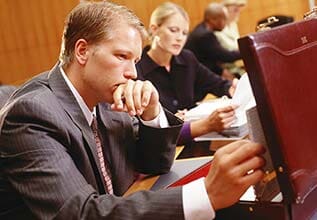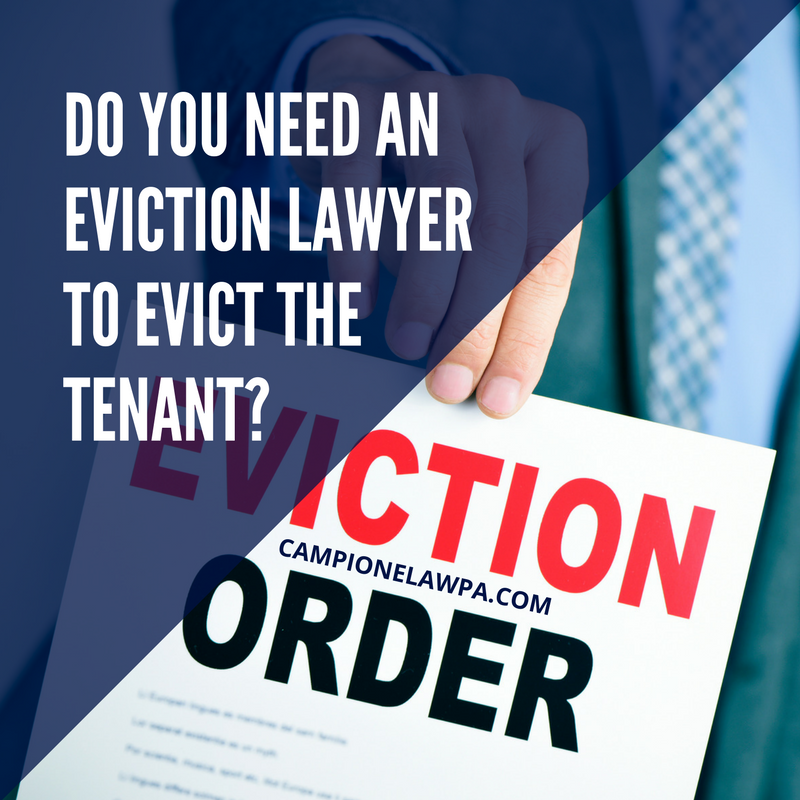What Are the Typical Instances Dealt With by an Eviction Attorney in Occupant Disputes?
Expulsion lawyers play an important function in addressing an array of tenant disputes that can develop in rental contracts. These professionals browse complex lawful structures to represent both occupants and landlords, ensuring that all parties understand their civil liberties and obligations. Comprehending the nuances of these disputes can illuminate the wider ramifications for lessee civil liberties and property owner duties.
Non-Payment of Rent
Non-payment of lease is a widespread problem that can lead to intricate legal disputes in between property owners and lessees. If the tenant does not conform, the landlord might submit for expulsion in the appropriate court.
In numerous territories, the lawful structure surrounding non-payment of rent is developed to protect both celebrations. Occupants may have defenses offered, such as declaring unliveable living problems or improper notification. Nonetheless, proprietors have to follow rigorous procedures mandated by legislation, including offering ample notice and filing the essential documentation (eviction attorney miami).
An expulsion attorney plays a crucial role in navigating these disputes. They can help proprietors recognize their rights and responsibilities while making certain compliance with regional policies. For tenants, lawful depiction can offer insight into prospective defenses and assist bargain favorable end results. Ultimately, attending to non-payment of rent efficiently requires a thorough understanding of the legal landscape to avoid long term disagreements and guarantee a fair resolution.
Lease Infractions
Lease offenses stand for a considerable concern in landlord-tenant connections, as they can result in disputes and potential eviction proceedings. These offenses occur when occupants fall short to abide by the terms detailed in their lease agreements. Common instances consist of unapproved subletting, failing to keep cleanliness, keeping animals without authorization, or engaging in disruptive actions that impacts various other renters.
Landlords have a lawful obligation to deal with these infractions quickly - eviction attorney miami. Typically, they will certainly issue a written notification to the renter, describing the certain violation and offering a specified timeframe for rectification. If the tenant falls short to comply, the proprietor may launch eviction procedures, which often demands legal treatment
Eviction attorneys play an important duty in these circumstances by making certain that the eviction process adheres to neighborhood legislations and policies. Furthermore, occupants dealing with accusations of lease violations may seek legal advise to object to the insurance claims or discuss terms to avoid eviction.
Wrongful Eviction Claims
Wrongful expulsion claims are a crucial element of landlord-tenant law, attending to situations where a tenant is gotten rid of from a rental building without legal justification. Such cases commonly arise when property managers fall short to comply with appropriate lawful treatments during the expulsion procedure, consisting of not supplying the required notification or carrying out expulsions without a court order.
The lawful structure surrounding wrongful eviction differs by territory however normally offers occupants with the right to oppose an expulsion if it lacks a valid reason or if due procedure was not observed. Common grounds for wrongful eviction cases include retaliatory activities by the proprietor, expulsion based on biased reasons, or eviction for factors that violate regional or state laws.
In pursuing a wrongful expulsion claim, lessees may look for various solutions, consisting of reinstatement to the rental residential or commercial property, problems for shed personal belongings or psychological distress, and lawful charges. An expulsion lawyer plays a see it here vital role in these cases, assisting Full Article occupants in gathering evidence, navigating court treatments, and supporting for their legal rights.
Understanding the subtleties of wrongful eviction cases is vital for both occupants and landlords to make sure conformity with the legislation and to safeguard their particular rate of interests within the rental connection.
Occupant Civil Liberty Issues
Several occupants may be unaware of their rights, which can result in exploitation and unreasonable therapy by property managers. Understanding lessee civil liberties is critical for maintaining a reasonable rental relationship and securing oneself from prospective abuses. Common lessee legal rights consist of the right to a habitable living environment, security versus discrimination, and the right to privacy.
Renters can request required repair work and maintenance, and property managers are legally obligated to deal with these concerns without delay. Furthermore, lessees are shielded under fair housing regulations, which ban discrimination based on race, sex, religion, and various other variables.
Moreover, lessees can privacy, suggesting landlords can not enter the rental device without appropriate notice, except in emergency situations. Lots of lessees are likewise not aware of their rights concerning protection deposits, including the demand for landlords to return deposits within a certain timeframe and provide itemized reductions for any type of damages.
When disagreements develop over renter civil liberties, an expulsion lawyer can supply important guidance and representation to assist tenants assert their legal rights and navigate intricate lawful circumstances. Understanding of these rights equips occupants to stand versus unjust practices and safeguard their real estate stability.
Building Damage Conflicts
Building damages disputes frequently arise between proprietors and occupants, making complex the rental connection and possibly causing legal activity. These disagreements commonly focus around claims of problems incurred during the occupancy that exceed normal damage. Landlords might look for compensation for repairs they believe are the result of lessee oversight, while renters might contest such claims, suggesting that the problems were pre-existing or a result of factors beyond their control.

Oftentimes, mediation may fix disputes without turning to litigation, saving both events time and resources. However, if unsettled, these disagreements can rise into eviction process, highlighting the significance of lawful representation in shielding the civil liberties and passions of both property owners and renters.
Final Thought
Expulsion legal representatives play a vital function in settling renter conflicts by addressing different typical cases, including non-payment of lease, lease violations, wrongful eviction cases, occupant civil liberties concerns, and residential or commercial property damages disagreements. Their know-how facilitates a better understanding of legal civil liberties and duties for both property managers and lessees. By browsing the intricacies of eviction processes and advocating for fair therapy, expulsion legal representatives add significantly to preserving justice within the rental housing system.
If the occupant does not conform, the property owner may file for eviction in the suitable court.

Furthermore, renters facing allegations of lease infractions might seek legal guidance to dispute the insurance claims or discuss terms to prevent eviction. Landlords may seek payment for repair services they believe are the result of renter oversight, while renters may dispute such insurance claims, suggesting that the damages were pre-existing or a result of elements beyond their control.
Expulsion legal representatives play a critical role in settling occupant disputes by attending to various usual instances, consisting of non-payment of lease, lease infractions, wrongful eviction cases, tenant civil liberties issues, and residential or commercial property damages conflicts.